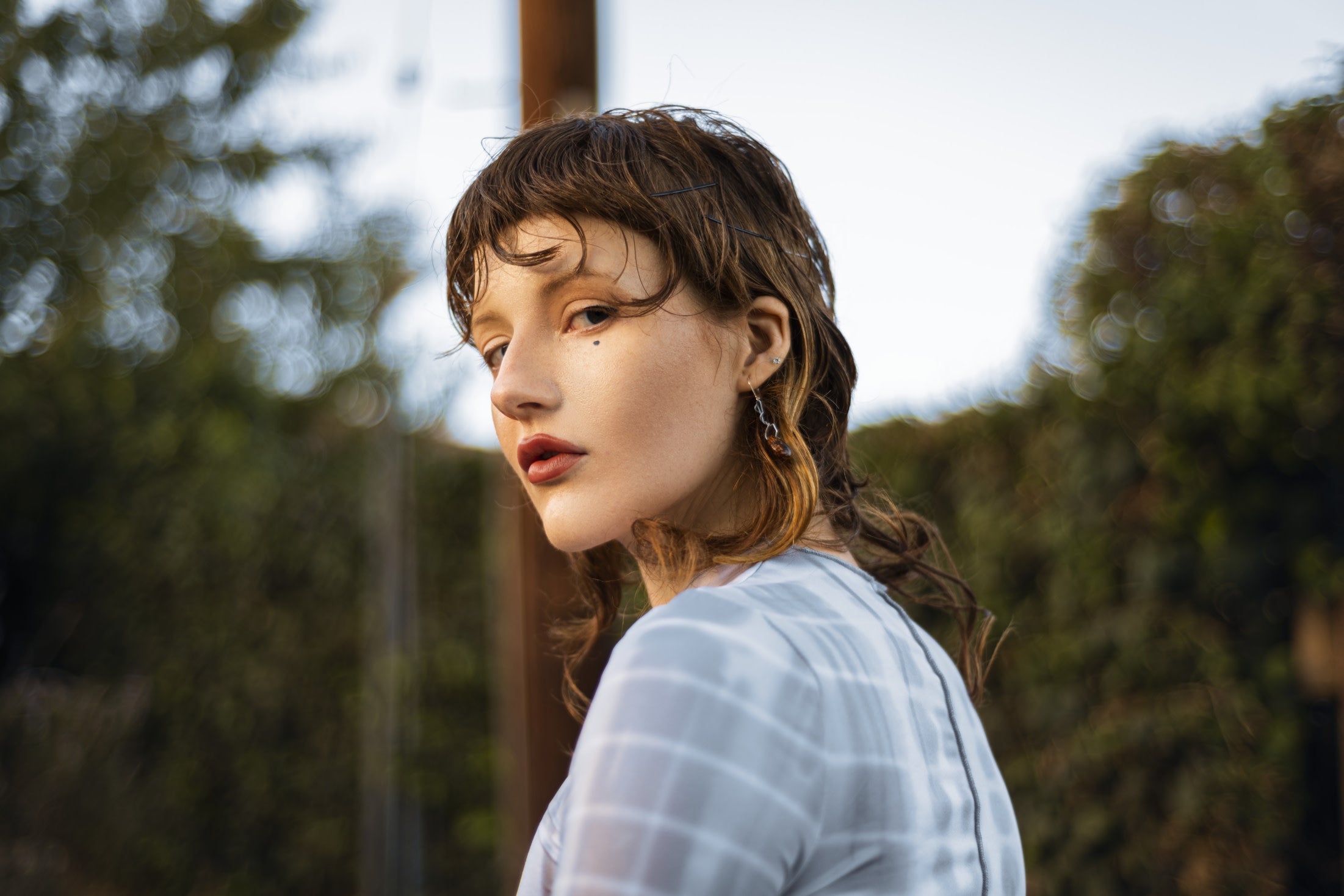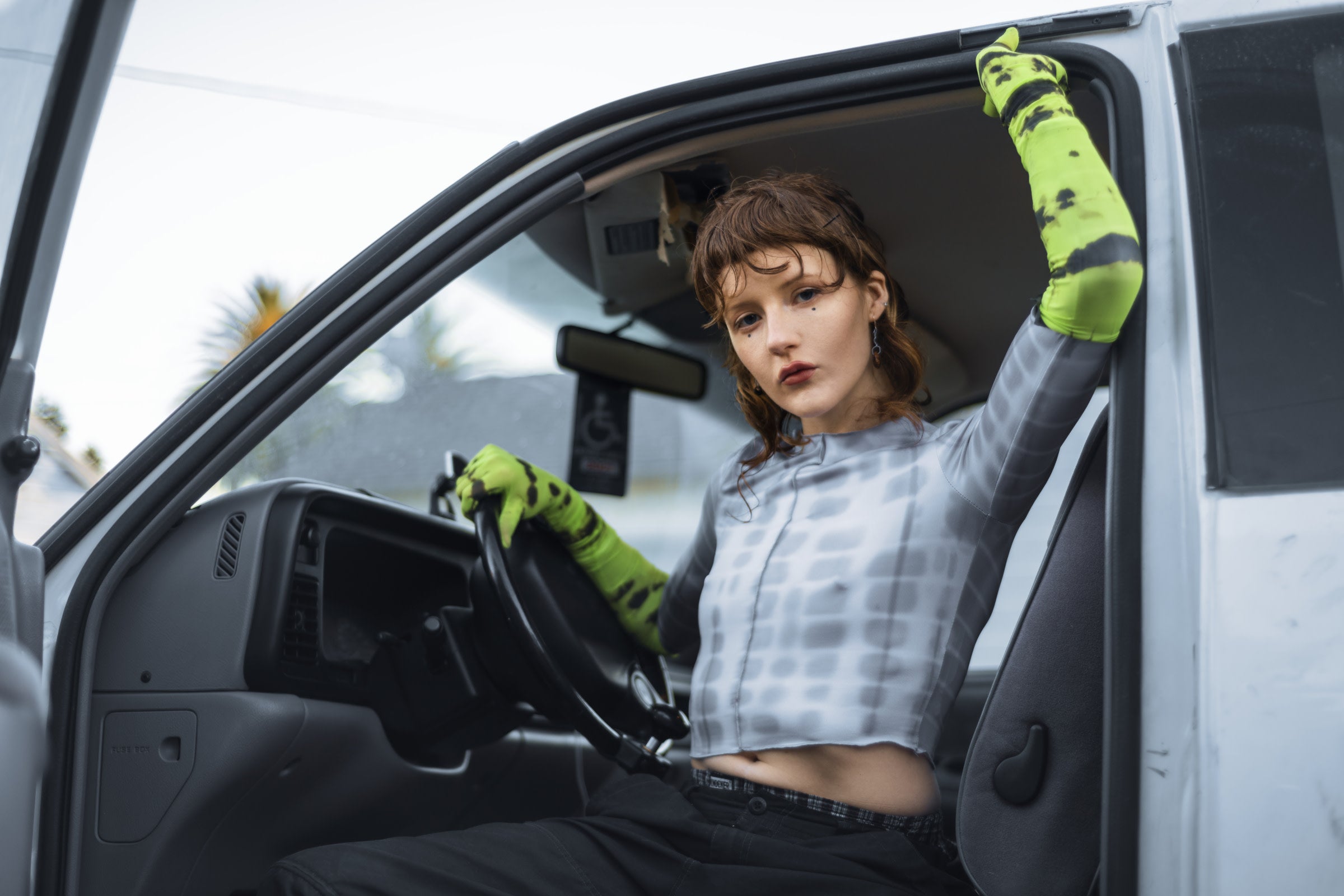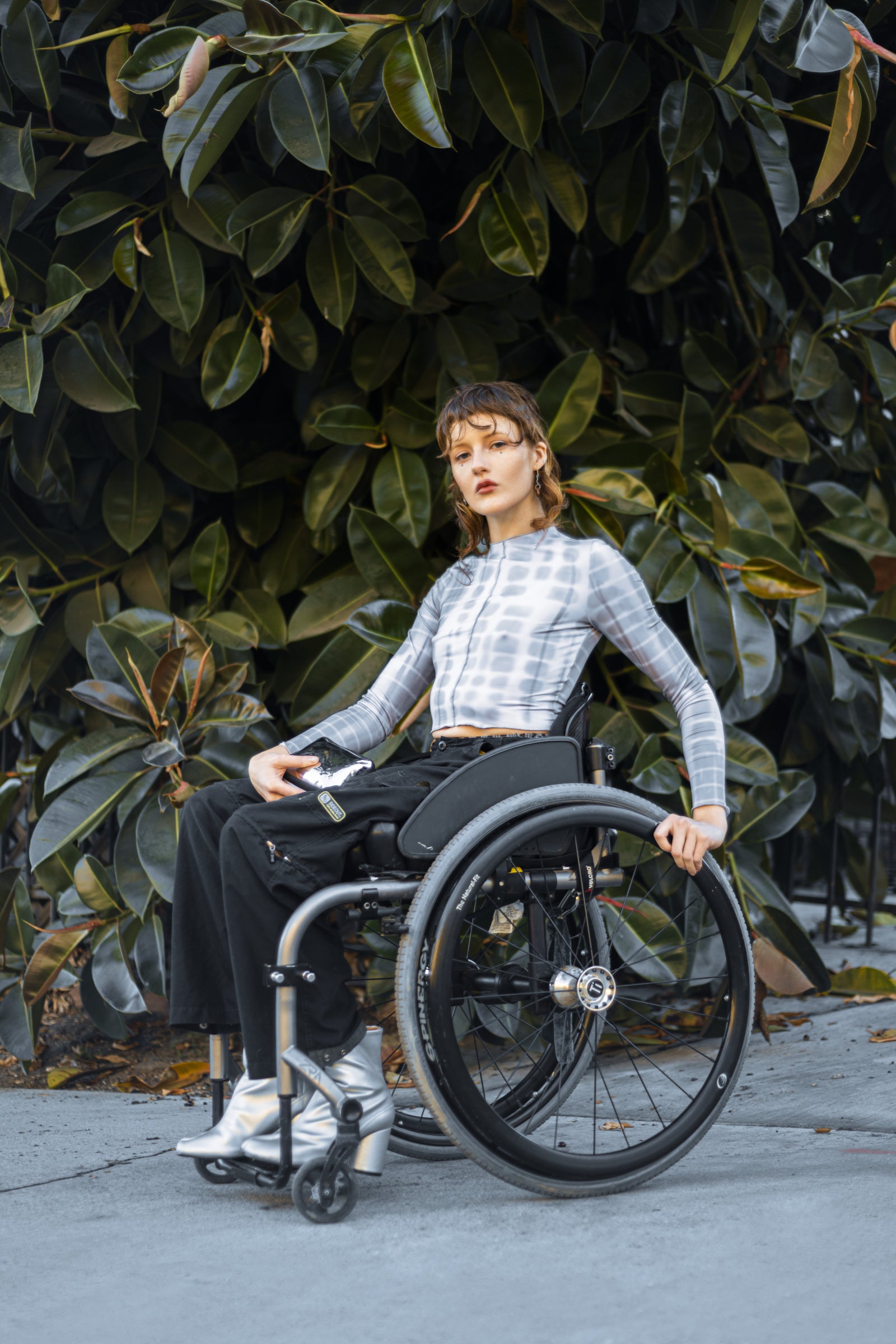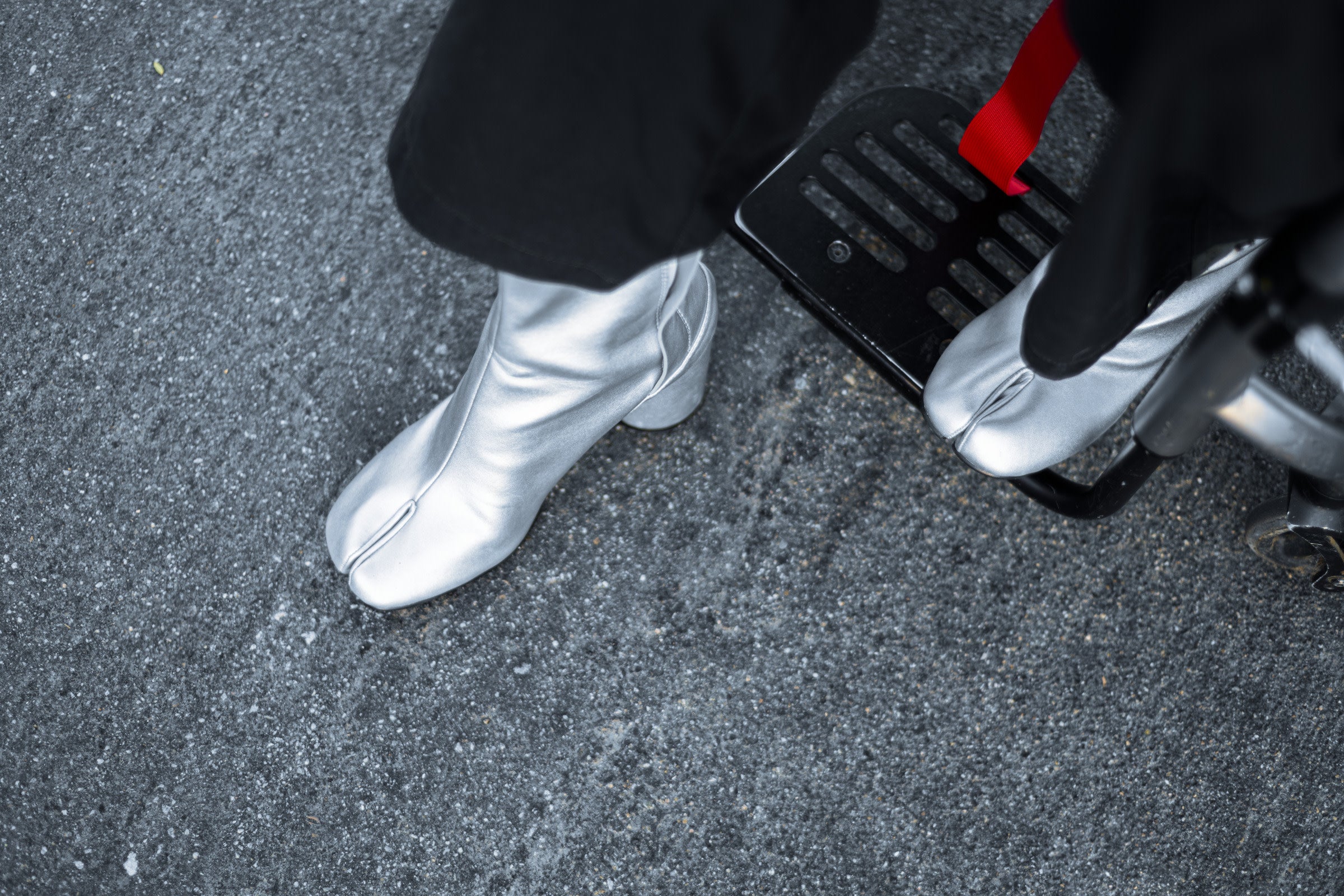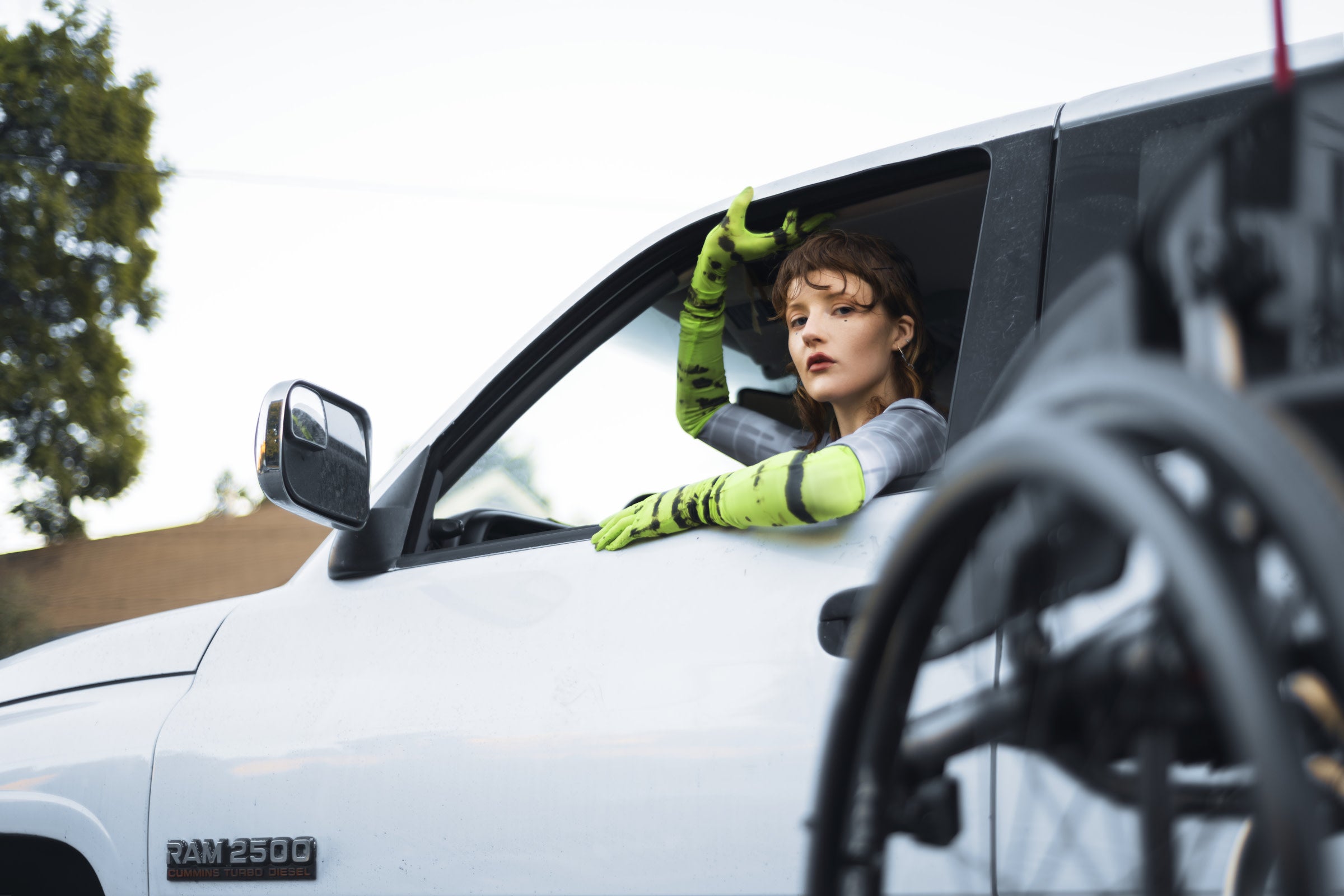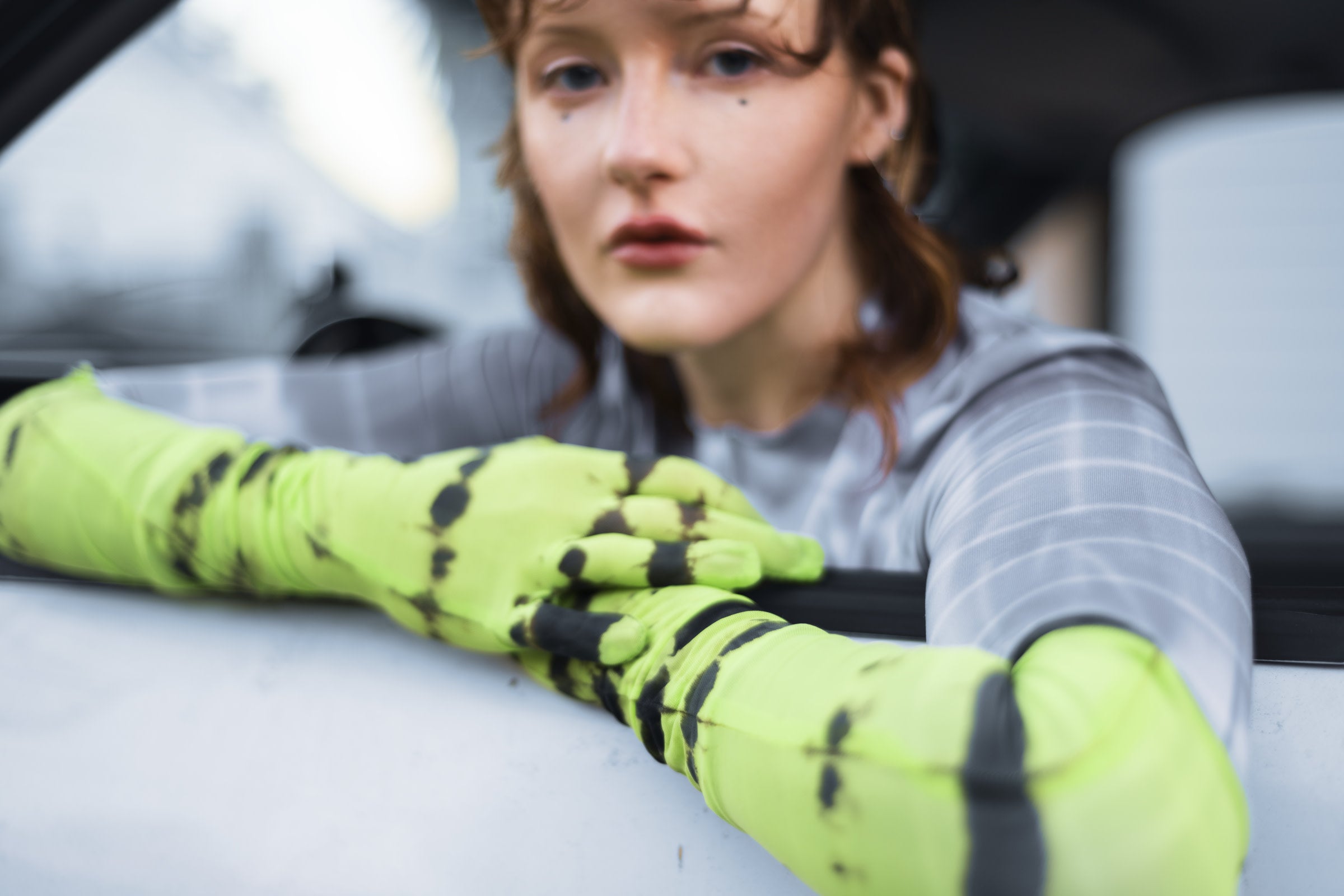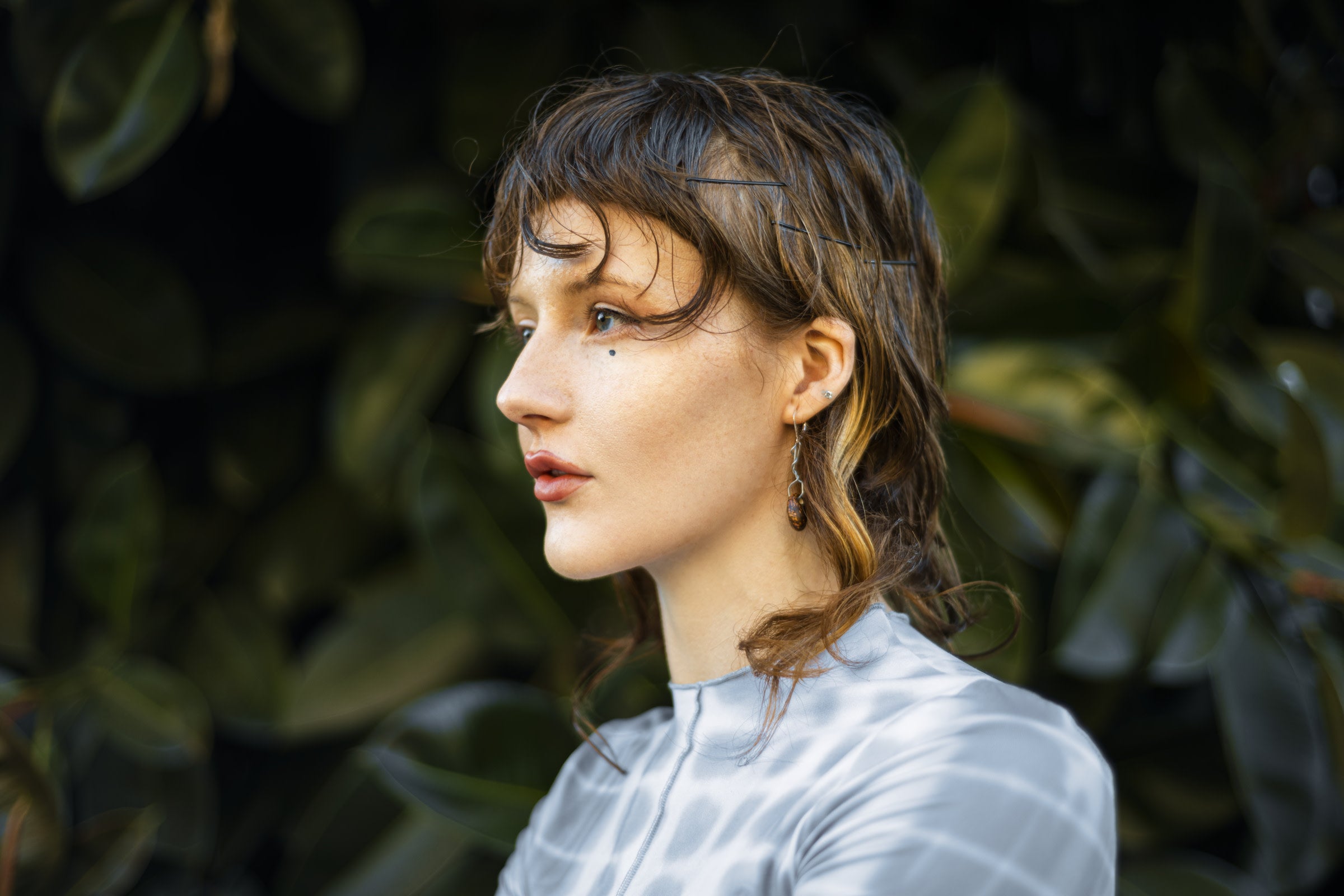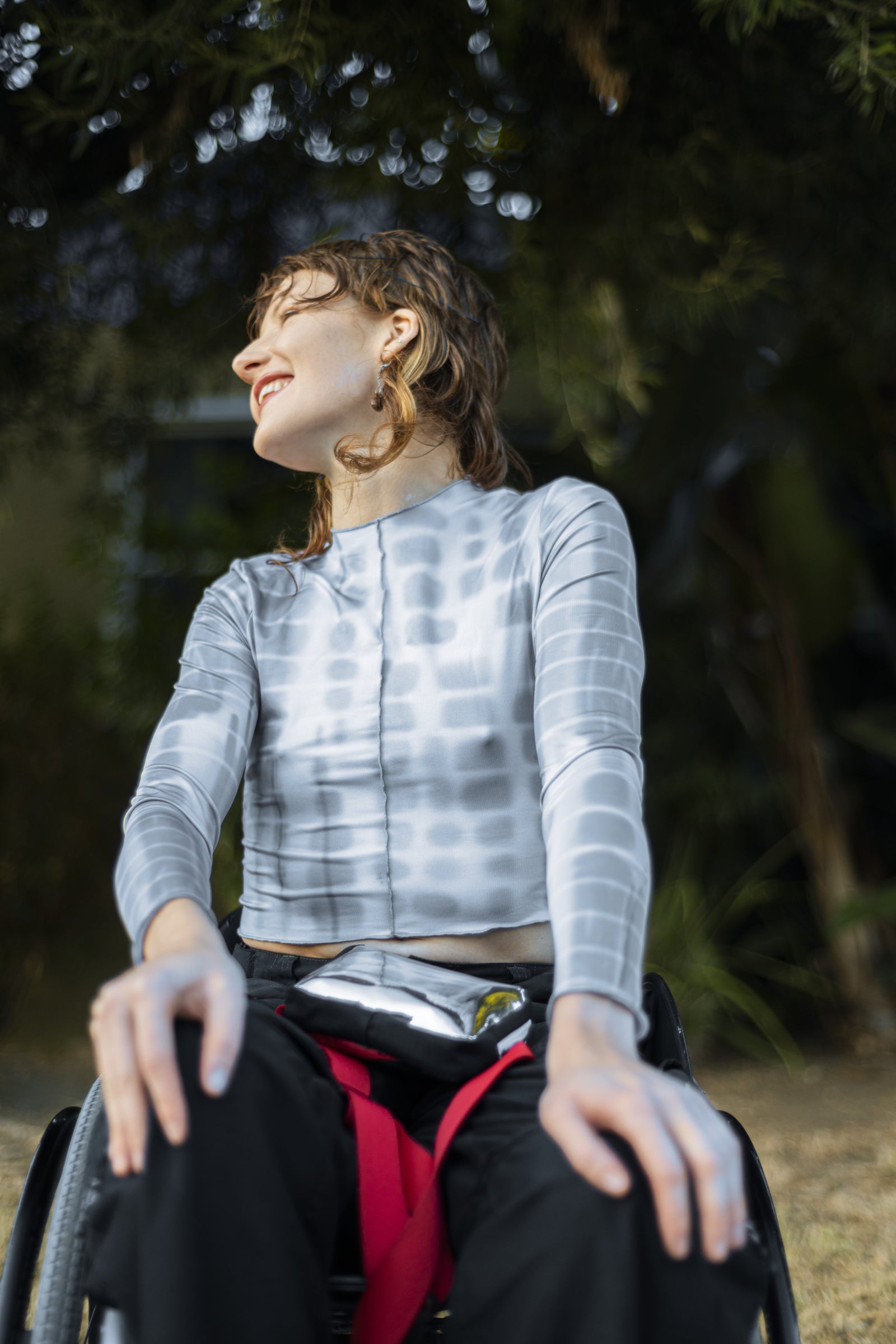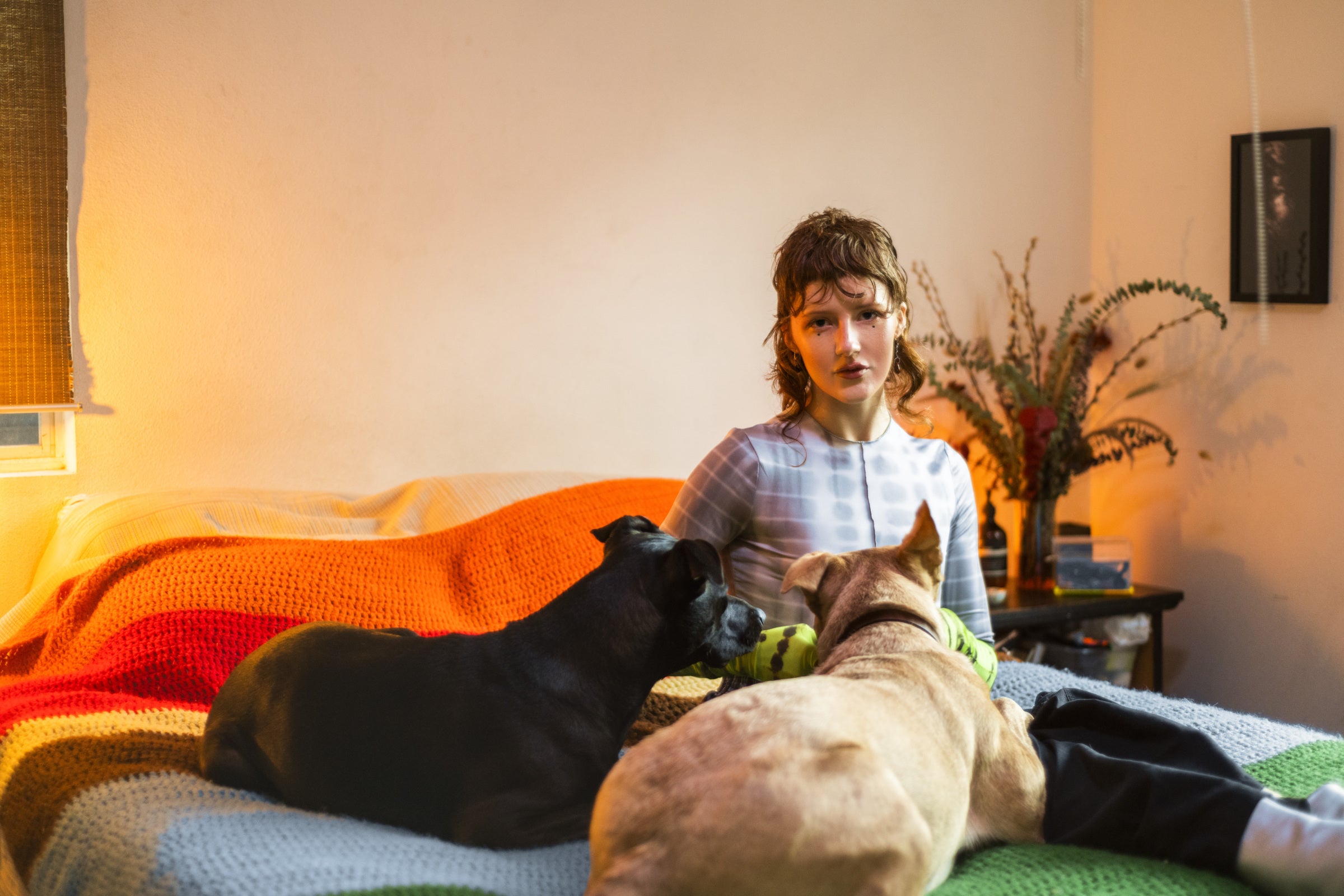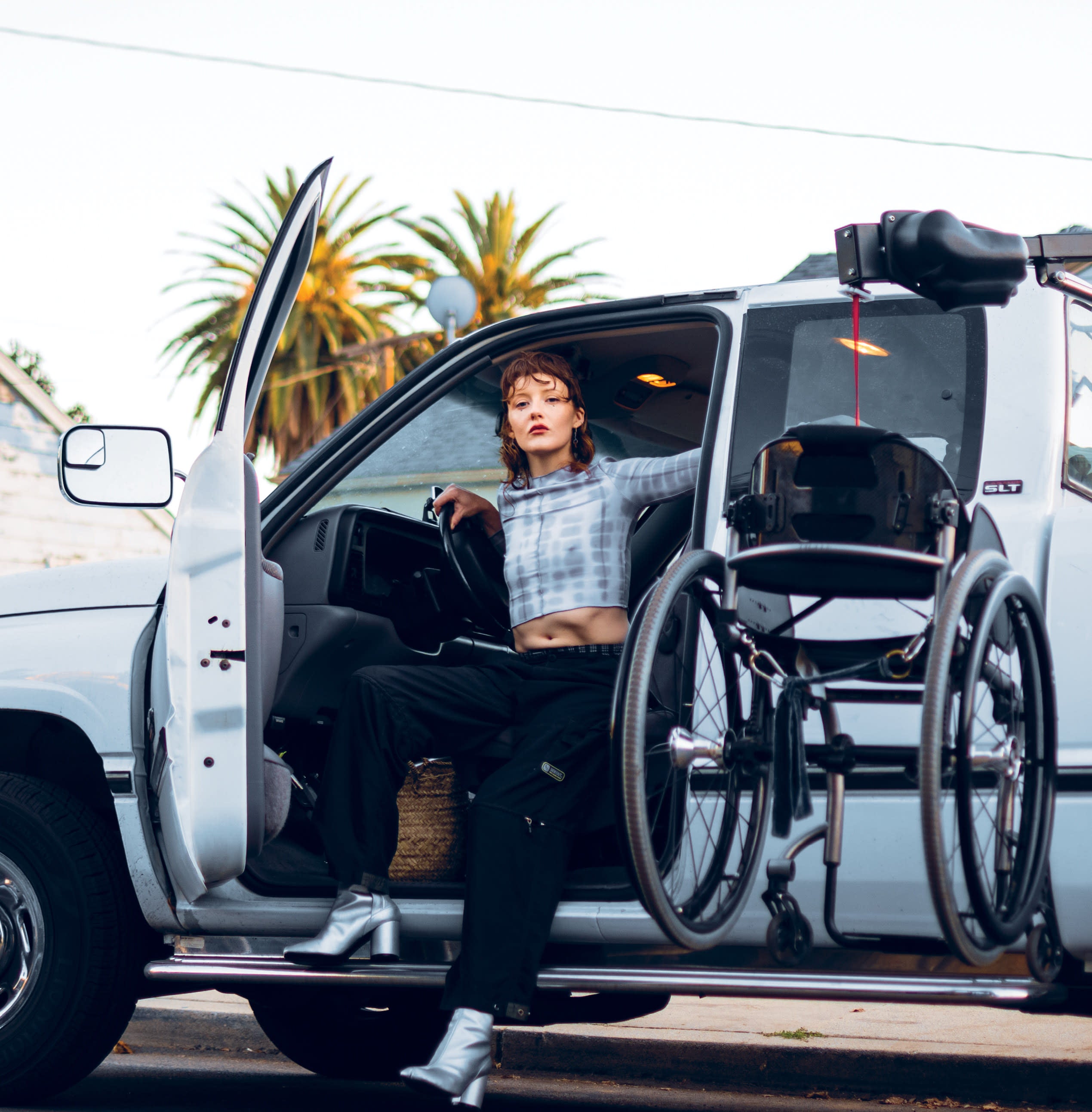I used to go to this Japanese coffee shop in downtown L.A. and their countertops are so low that I couldn’t help but ask them about it. They were like, “Yeah, it’s way easier to make coffee and use an espresso machine when the countertops are lower.” I was blown away that I could pull up to the counter and order something. Usually I can’t even use the pin pad to pay. I mean, where’s my discount for not being able to buy something at a space?
Disabled people, you don’t see us exist out in the world even though there’s so many of us. The way that people feel right now during COVID, this is how the people with chronic illnesses and people with disabilities have always lived. You think that we don’t exist because we can’t use the sidewalks, or we can’t use the restroom, or we can’t get into your office building, but we exist. We just aren’t able to be present in public the way that able-bodied people are because we can’t even use the sidewalks.
It’s funny seeing a lot of art come out recently about disability from people with a lot more of what I call “able-assumed privilege.” Like disabled people who can at least pass as able-bodied and can exist within the built environment the same way. For them, disability is all about identity politics. I think disability is a set of material constraints that, if they were to be solved, we wouldn’t have disability anymore. I’m not tied to my identity as a disabled person because I didn’t choose it. Disability is a social construct that would not exist if these things were solved. That’s what I want. I want accommodations to not be seen as a luxury, but to be the same thing as asking someone what their pronouns are.
Everyone’s art is shaped by their lived experience, and some people’s lived experiences are more homogenous. The perspective that we have of the world is from a specific group of people with certain privileges that enable them to be artists and writers. I come from a different angle. I don’t think art should just be a mirror of this really monstrous norm. The most interesting art is obviously emotionally driven, but also from a perspective that someone otherwise wouldn’t have. Felix Gonzalez-Torres is my favorite artist of all time, so I think that very much sums up how I feel about using a particular experience of suffering to inform and ask questions about the society that we live in—and time and space and love and these bigger, more universal questions.
